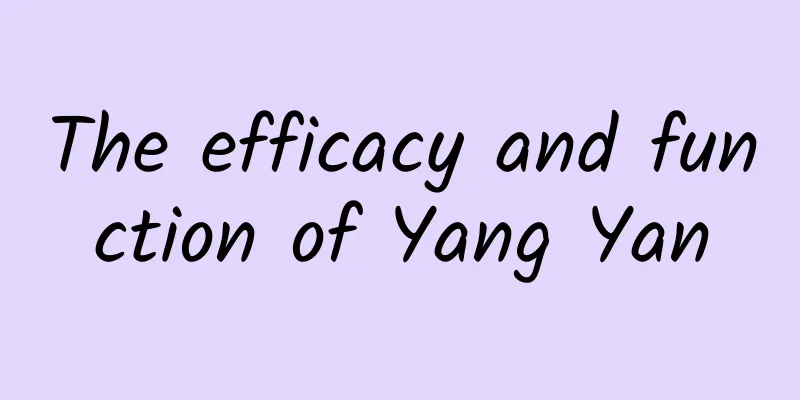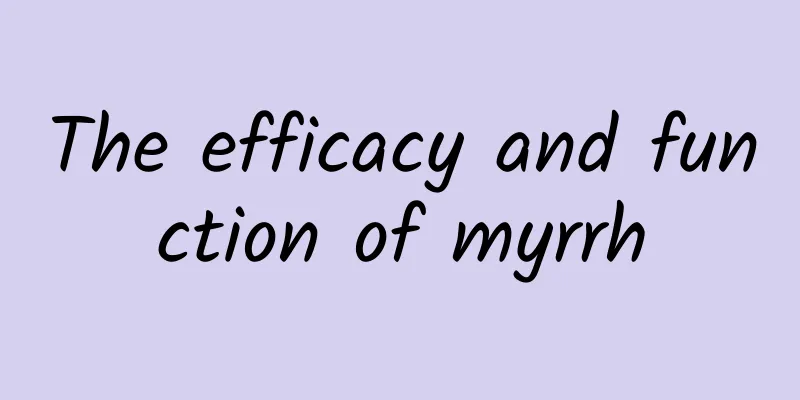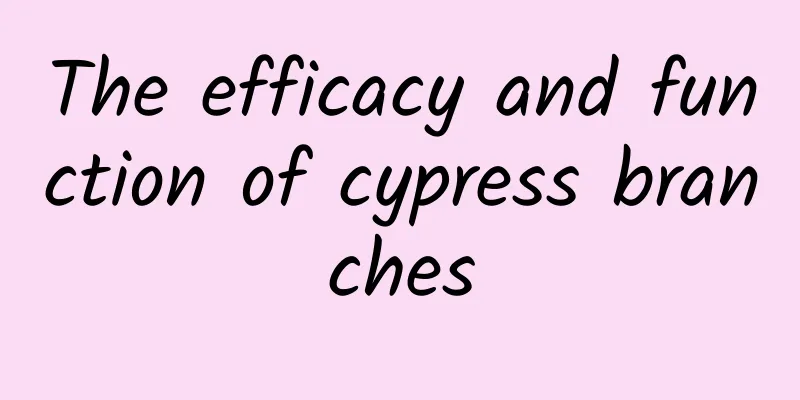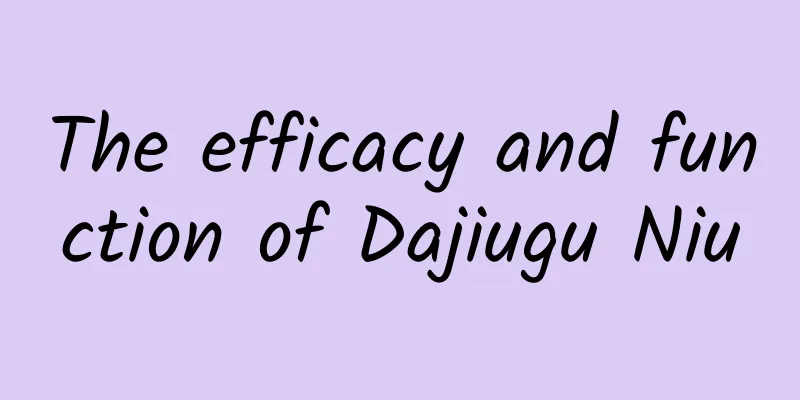One Chinese medicine nourishes the five internal organs
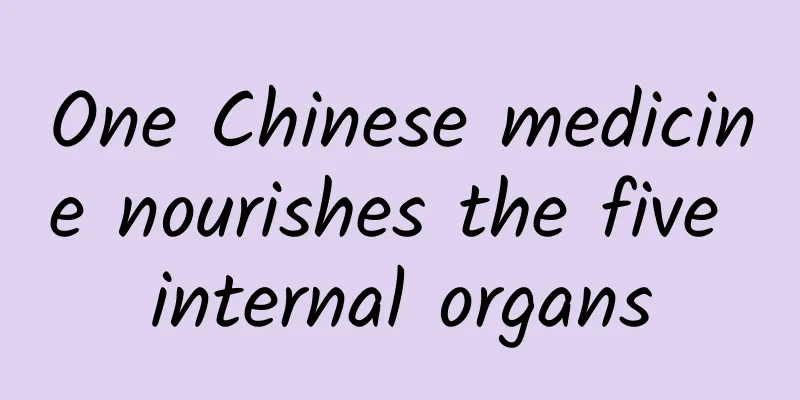
|
It is one of the most common Chinese medicinal materials. Tao Hongjing called it "the king of all medicines" and Li Shizhen believed that it "cures all kinds of evils." Moreover, it has a sweet and mild nature and is nourishing. It can have both soothing and stimulating effects, and it can also nourish the five internal organs. It is also very cost-effective. So, which Chinese medicinal material is it? It is the most common but special licorice. Licorice is one of the most common Chinese medicinal materials and has many nicknames, such as Meicao, Migan, Micao, Fencao, and Tiancao, all of which are related to the sweet taste of licorice. In addition, licorice has an interesting nickname - Guolao, because it is sweet, mild and nourishing, and can have both soothing and expeditious effects. When added into prescriptions, it can supervise, control, restrain and promote some medicines with strong or slow properties. In different prescriptions, it can be the monarch, minister, assistant or messenger, and can adjust various medicines to make them exert their medicinal effects as soon as possible. Therefore, in the kingdom of medicine, licorice is the oldest medicine. Modern scientific research has found that licorice contains thousands of ingredients, which have antiviral, anti-infection, and liver protection effects. It can be used to treat spleen deficiency, cough and asthma, sore throat, carbuncle, swelling and other symptoms. Heart "Leigong Paozhi Lun" first proposed that licorice enters the "heart and spleen meridians". Wang Haogu of the Yuan Dynasty proposed in "Tangye Bencao" that licorice "enters the foot Jueyin, Taiyin and Shaoyin meridians". According to the descriptions in ancient books that licorice can "open the meridians, benefit qi and blood", "calm the soul and calm the spirit, replenish the five labors and seven injuries, all deficiencies, palpitations, irritability, memory loss, open the nine orifices, and benefit all meridians", licorice has the effect of nourishing the heart. 1) Nourishing the Spirit and Restoring the Pulse The function of licorice is mainly used for the treatment of "palpitations and irregular pulse", and the representative prescription is the Zhigancao Decoction in "Treatise on Febrile Diseases", which is a prescription for tonifying blood, qi, yang and yin. In addition to a large amount of Zhigancao, Ju Rui also uses mountain ginseng to tonify qi and blood, raw rehmannia and ophiopogon to tonify yin, cinnamon twig and ginger slices to unblock yang, and donkey-hide gelatin, hemp seed and red dates to tonify blood and qi. When roasted licorice is used together with this kind of medicine that nourishes blood, qi, yang and yin, it can give full play to its "dual nature of sweetness and purity", and each has the effects of nourishing qi and blood, nourishing blood and qi, nourishing yin and yang. In addition, Zhigancao Decoction is effective for other symptoms caused by deficiency of Qi and blood, deficiency of Yin and hyperactivity of fire, and fluid deficiency, such as insomnia, consumptive disease, lung consumption, deficiency of Qi and blood, and convulsions. In clinical medicine, this prescription is often used to treat respiratory system diseases, such as arrhythmias including ventricular premature beats, bradycardia, high-frequency arrhythmias, or viral myocarditis, coronary heart disease, dilated heart disease, etc. 2) Calming the mind Licorice has the function of nourishing the heart and calming the mind, and is mainly used to treat insomnia, palpitations, irritability and other mental disorders. If the heart qi is insufficient and the heart strength is deficient, the heart will have no place to rely on and the spirit will have no place to nourish, resulting in insomnia and palpitations. You can use roasted licorice alone or in combination with Acorus calamus, Panax ginseng, Polygala tenuifolia, etc. to nourish and calm the mind, such as the licorice pills in "Prescriptions for Emergencies". Zang-mang is mostly caused by liver qi stagnation, insufficient heart qi, and depleted heart strength, which is specifically manifested as symptoms such as depression. The treatment focuses on nourishing blood and qi, calming the nerves and helping sleep. The "sweet and slow" nature of licorice can calm the nerves and help sleep, and it is often used with Huai wheat, jujube, etc. to treat visceral agitation, such as Ganmai Dazao Decoction. |
<<: One medicine cures loose stools
>>: One Chinese medicine to open up the gallbladder meridian
Recommend
Why do puppies and cats shake their bodies after being splashed with water? | Nature Trumpet
Welcome to the 69th issue of the Nature Trumpet c...
Why can the communication world be updated and iterated? Because of the "magic" of this signal
Have you ever wondered how information can travel...
The efficacy and function of Qianli Zhaogen
For any kind of medicinal material, only when we ...
The efficacy and function of small powder
Xiaofen is a traditional Chinese medicine. In add...
Long picture丨Returning from space, counting the moments of astronauts landing and leaving the spacecraft in the past 20 years
Produced by: Xinhua News Agency PLA Branch Produc...
The efficacy and function of five-lobed maple
When it comes to the five-lobed maple, we are all...
Health Tips | What is the reason for "sleep paralysis"? Here is the scientific explanation
Many people have experienced this situation: when...
The efficacy and function of single grass
We know that there are many kinds of Chinese medi...
What are the medicinal values of water nephew
Leeches are also called leeches. They are an inse...
The efficacy and function of stevioside
Stevioside, also known as stevioside, is a glycos...
What are the medicinal values of soapberry
Soapberry, also known as Soapberry, is a kind of ...
The Devil Boy's Trouble in the Sea, Made It to the Cover of a Top International Academic Journal? Pictures Speak the Truth
The 2025 Spring Festival movie "Nezha: The D...
What overlooked little details on your mobile phone are secretly leaking your privacy?
appendix: References: Source: A scholar The cover...
